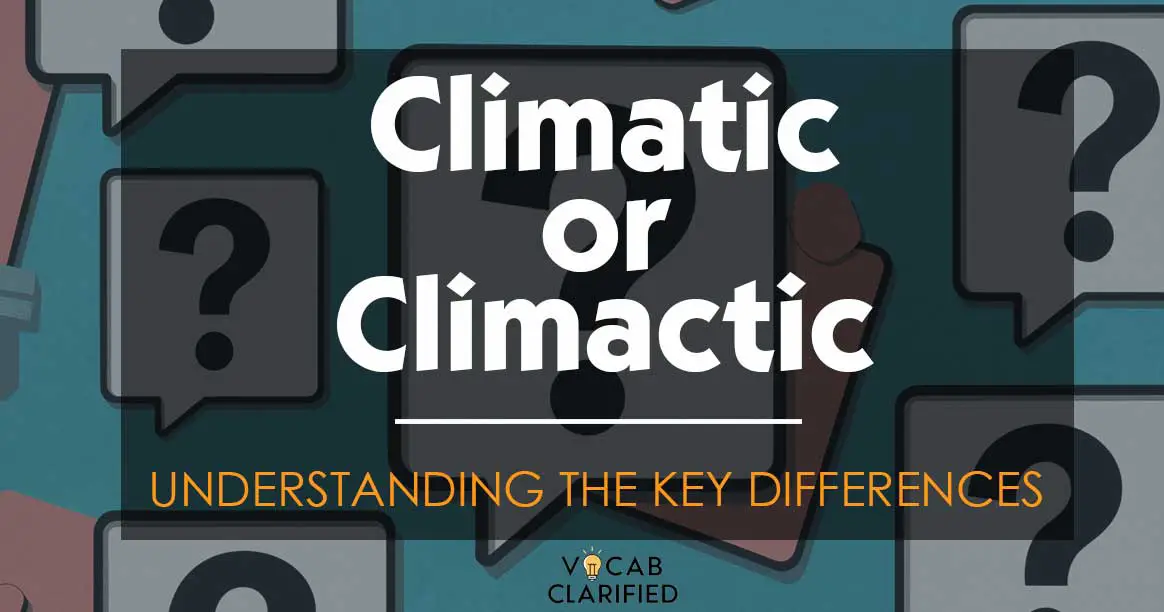Have you ever wondered whether to use “climatic” or “climactic” in a sentence? These two words are often confused due to their similar spelling, but they convey very different meanings.
Let’s dive into the nuances of “climatic” and “climactic” to help you choose the right word in any situation.
Understanding Climatic And Climactic
Climatic: Definition and Usage
“Climatic” is typically used in contexts related to climate or weather. It derives from the word “climate” and refers to anything pertaining to the climate of a particular region.
For example:
- Example 1: “The climatic conditions in the Sahara Desert are harsh and arid.”
- Example 2: “Climatic changes over the past century have led to global warming.”
In these examples, “climatic” is used to describe situations directly related to weather patterns or the long-term atmospheric conditions of a place.
Climactic: Definition and Usage
On the other hand, “climactic” is often applied in contexts involving the peak or most intense point of a series of events, especially in storytelling. It comes from the word “climax” and is used to describe the most exciting or important part of a narrative.
For instance:
- Example 1: “The climactic scene of the movie left the audience on the edge of their seats.”
- Example 2: “The climactic battle in the novel was both thrilling and unexpected.”
Here, “climactic” refers to the turning point or the most crucial moment in a sequence of events, particularly in a story or situation.
Side-by-Side Comparison
To further clarify the differences and help you decide which to use, here’s a side-by-side comparison:
| Aspect | Climatic | Climactic |
| Definition | Related to climate or weather | Pertaining to the climax or most intense point |
| Common Usage | “The climatic conditions in the Arctic are extreme.” | “The climactic moment in the play was breathtaking.” |
| Key Differences | Involves atmospheric conditions | Involves the peak or turning point of an event |
When deciding between “climatic” and “climactic,” consider the context. If you are discussing weather or long-term environmental conditions, “climatic” is the appropriate choice.
However, if you are referring to the most exciting or important part of an event, “climactic” is the term you should use.
Everyday Usage Examples
To further illustrate how “climatic” and “climactic” fit into everyday language, consider these examples:
- Climatic: “The region’s climatic patterns have shifted due to global warming.”
- Climactic: “The climactic finale of the concert was a showstopper.”
- Climatic: “Researchers study climatic changes to predict future weather events.”
- Climactic: “Her climactic decision changed the course of the story.”
- Climatic: “The movie explores the impact of climatic disasters on human survival.”
- Climactic: “The climactic showdown between the hero and the villain was unforgettable.”
Conclusion
In summary, “climatic” and “climactic” may look similar, but they serve very different purposes in language. Use “climatic” when discussing climate-related topics and “climactic” when referring to the high point of an event or story.
Understanding these distinctions ensures clear and accurate communication, whether you’re writing about weather patterns or the dramatic peaks of a narrative.

